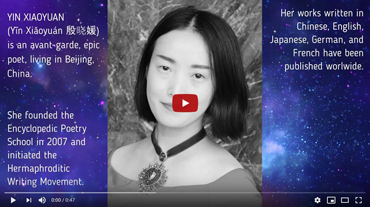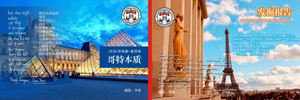Page last updated: September 15, 2020
All pages copyright © 2020 by Pinyon Publishing

CLOUD SEEDING AGENT
Collected Poems by YIN Xiaoyuan
With Art by CHEN Shui, DENG Xiang, Ölmalerico, John Charles RYAN, Jason SHEN, WANG Jun, XIA Haitao, & ZHANG Wanchang
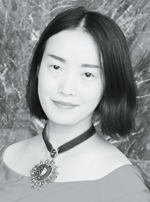 YIN XIAOYUAN (Yīn Xiăoyuán (殷晓媛) is an avant-garde, crossover epic poet as well as a trans-genre & multilingual writer.
YIN XIAOYUAN (Yīn Xiăoyuán (殷晓媛) is an avant-garde, crossover epic poet as well as a trans-genre & multilingual writer.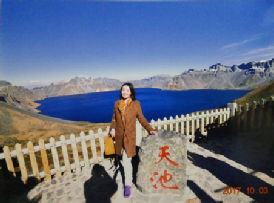 y Institute of China.
y Institute of China.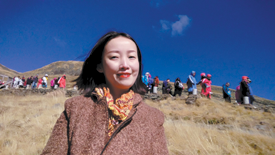
Full Color
120 pages (40 with art)
Hardcover, 11” x 8.5”
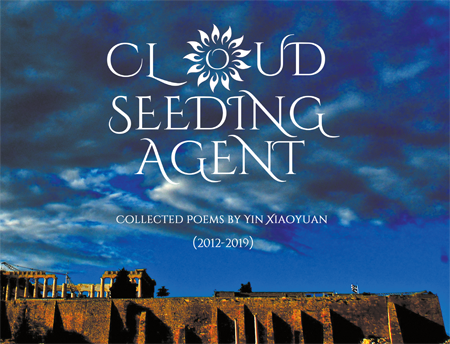
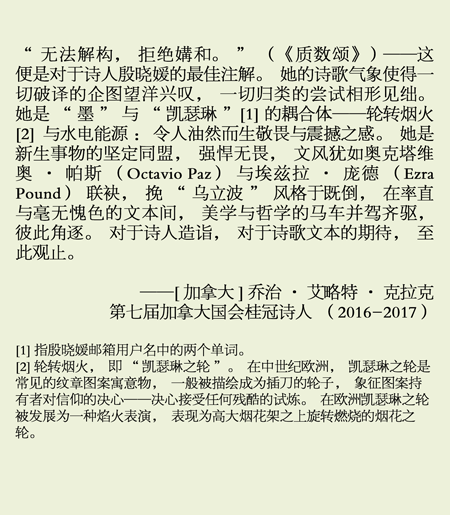
Praise for Cloud Seeding
Yin Xiaoyuan’s writing is remarkable. The energy it displays in intellectual conception is compelling. So too is the precision and concentrated detail of these verses. This is experimental writing at its best, nurtured within the context of Encyclopedic Poetry School, which she founded. Yin’s poetry ranges confidently over the poetic traditions of both Europe, the USA and China, modifying and enriching both, borne up by a belief in translation as a crucial and creative stimulus to the inter-play of cultures. Poems such as “Wolfram” are notable for their exhilarating command of English, lexis is confident and expansive; rhythms are sustained yet exciting; argument and dramatic voice carry to fine conclusions. Lines such as these are highly original and deserve to be greeted with the utmost enthusiasm.
—ROBIN KIRKPATRICK
Professor emeritus, Italian and English Literatures, Cambridge University
Xiaoyuan’s exciting poetry charts a new path in contemporary Chinese poetry, and this beautiful volume shows her poetic gifts on full display. The rich inventiveness of her poems stems from a combination of her compositional virtuosity, the use of different linguistic and conceptual domains, and the experience gathered from her prolific activity as a poet engaged in translating poems from many cultures. Her poems reveal a deeply original and welcome voice in the panorama of contemporary Chinese verse. An avant-garde artist, she has created a series of unpredictable and stunning poems, which testify to the ingenuity of her poetic talent.
—JACOB BLAKESLEY
Associate Professor in Comparative Literature and Literary Translation, University of Leeds
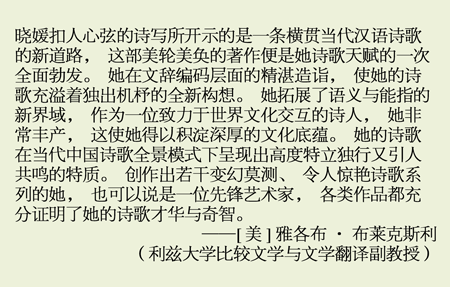
“When you saunter down to the seaside, hands in pockets, local people approaching you with buckets of olives and sardines cannot actually meet you, as if you were walking past this place at different times of day. They indulge in their neon nights while you embrace your sapphire days.”
(From “Ode to Prime Numbers”)
~ ~ ~
“You never exerted gravity, the way neutron stars do, so why are all celestial objects attracted to you
Forming an equiangular spiral, like crested ibises underneath draperies of the dusk ...”
(From “Radial Photography, Human-Centered”)
~ ~ ~

Yin Xiaoyuan holds back nothing. Their poems are bulky, excessive, cinematic and suddenly despondent and pulling back and the poem ends. I applaud the richness of the work, its bravery, its quirkiness. I turn the pages of Cloud Seeding Agent eagerly for another vista and another reshuffling of what a poem is. I feel like a fledgling lover, abandoned, happy and surprised.
—Eileen Myles
Poet, author of I Must Be Living Twice
~ ~ ~
“Aperture F/11.0 Focal Length 24 mm ISO/Film 100 …
Scribbled and crumpled, thrown into a waste basket, the labels were still bouncing.
Out there, from the pictures in the exhibition hall,
Images of flamingoes buoying up, formed embryonic brilliance of the dawn,
There was a metamorphosis, taking place simultaneously, inside and outside”
(From “Coastal Erosion”)
~ ~ ~
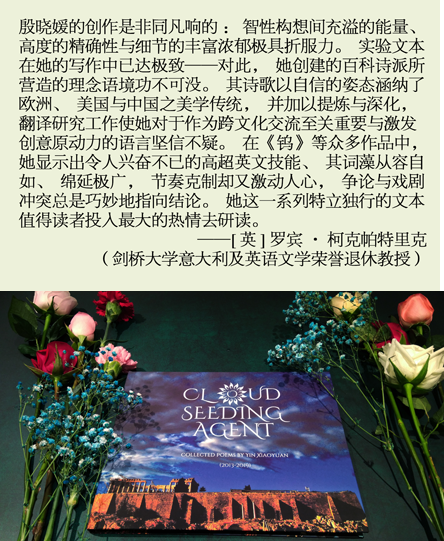
“Flowers covered by frost, gelatinous sky drooping low, boats drifting between olive-green islands …
Why are there furrows and creases on the surface of this aquamarine-blue planet?
It is between you and her. A ridge, different from that of a mountain or a roof,
bleak and sheer, where gravity experiments fail and earth’s magnetism disappears,
like daylight slipping away from your grasp.”
(From “Intersection Lines”)
”Undeconstructible and enigmatically unyielding,” that is Yin Xiaoyuan. Her poetry weathers vain attempts at interpretation and rebukes all efforts at categorization. Her ink blends Catherine- wheel fireworks and hydroelectricity: Awe and Shock. A partisan of the new, so strong and audacious, she unites Octavio Paz and Ezra Pound, rescues Oulipo from its degenerative state, and exposes—bluntly and unapologetically—Beauty and Philosophy running in tandem and chafing against each other. No one can ask a poet—or Poetry—to achieve more.
—GEORGE ELLIOTT CLARKE
Parliamentary Poet Laureate of Canada (2016 & 2017)
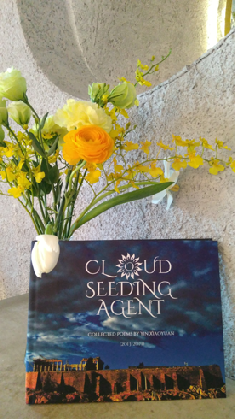
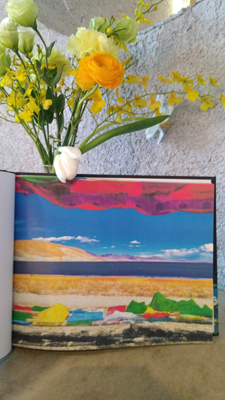
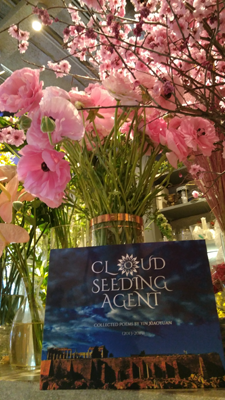
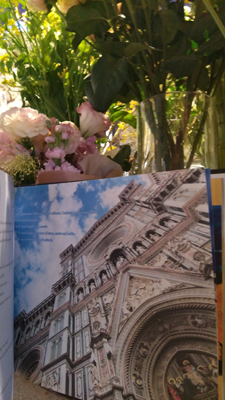
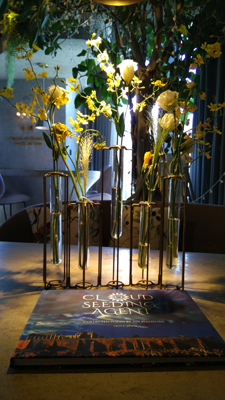
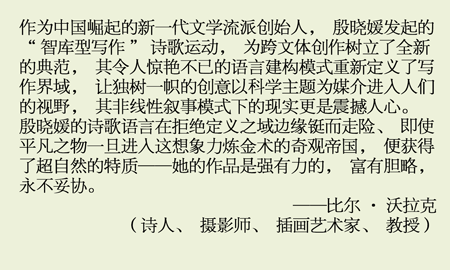
Yin Xiaoyuan is the founder of E.P.S.—an emerging group of Chinese poets who—by offering new paradigms for the mixing of genres in the Encyclopedic Poetry Movement—have transformed writing with breathtaking language juxtapositions, with the introduction of innovative scientific subject matter, and with astonishing, non-linear representations of reality. Her poetry pushes language to the brink of the undefinable, where the ordinary through a miracle of imaginative alchemy becomes numinous. Yin Xiaoyuan’s poetry is powerful, bold, and uncompromising.
—BILL WOLAK
poet, photographer, collage artist, professor
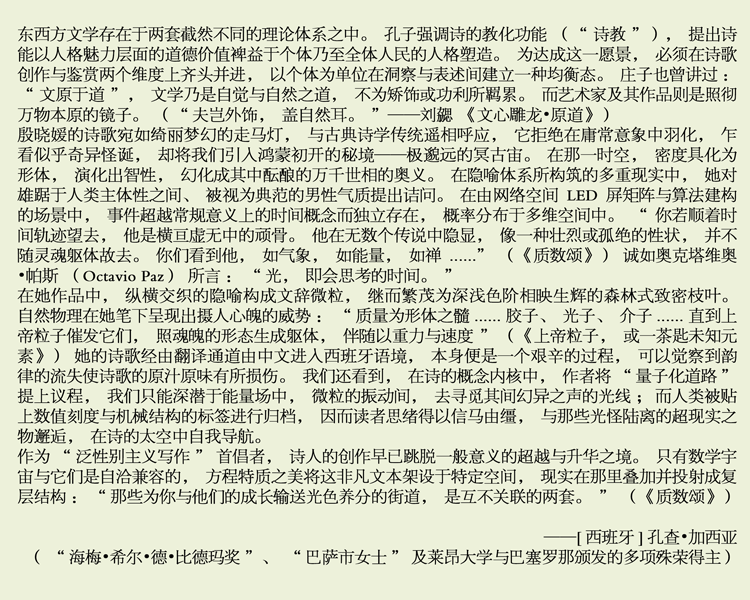
La teoría literaria china difiere absolutamente de occidente. Ya Confucio afirmaba que la poesía tiene una función didáctica y puede forjar al individuo y al pueblo a través de una moral de influencia personal, para ello había que practicar la lectura así como ejercitarse en la composición poética, lo cual ayudaba a mantener un equilibrio personal entre lo que se siente y lo que se dice. También el maestro Zhuang Zi dijo que el concepto de literatura se define como manifestación del Tao, es decir, el camino espontáneo y natural que nada tiene que ver con lo artificioso y pragmático, y el artista/texto se convierte en un espejo que refleja la verdadera naturaleza de las cosas.
Las oníricas imágenes de la poesía de Yin Xiaoyuan, respondiendo a su tradición, no se despliegan en conocidas imágenes por extrañas que pudieran ser, sino que nos llevan al enigmático mundo del principio, del “tiempo Hadeano”, densidades que van cobrando formas configurando la mente para imaginar otros conceptos. A medida que sus metáforas construyen un escenario multi-real, en algunos pone en cuestión la masculinidad como principio que ha regido la subjetividad humana, en un escenario de pantallas LED y de aritméticas configuradas en el espacio de las redes, más allá del tiempo que conocemos puesto que éste se dimensiona en otras posibilidades. “Cuando apartaste la mirada más allá de los rieles del tiempo, él se hizo visible emergiendo desde la superficie de lo etéreo, brillando con vigor y tenacidad. Esos atributos suyos no perecen con el cuerpo, ni siquiera con el alma. Está encarnado en todas partes, en el clima, la energía e incluso en el Zen”. Como dijo Octavio Paz, “la luz es tiempo que se piensa.”
El entramado de metáforas configura partículas y densos ramajes entre bosques de verdores diferentes. La naturaleza cobra una forma amenazadora como “la materia inevitablemente funcionará como una fuente de luz/ un universo inundado de gluones, fotones y mesones. El misterio , de la misma manera que las almas se combinan con los cuerpos/ son bendecidos con la gravedad y la velocidad”. La originalidad de esta poesía no la encontraremos en el ritmo –la traducción del chino al español presenta sus dificultades-, la encontraremos en el concepto mismo del poema. La autora propone “Caminos cuánticos” , donde solo a través de los campos de energía y vibraciones nos iremos encontrando con haces de voces fantasmagóricas, clasificando a los hombres con puntuaciones según estructuras, por lo que al lector puede imaginarse formas insólitas, surrealistas, navegando en el espacio del poema.
Iniciadora del Movimiento de poesía Hermafrodita, la poeta extiende sus versos exentos de trascendencia y sublimación, solo es posible el encaje en un mundo matemático donde la belleza de las ecuaciones configuran esta insólita poesía en un espacio que multiplica y proyecta varias realidades: “Las calles te han dado todos los colores y sonidos de la vida que están el sistema paralelo al suyo”.
—Concha García,Ganadora de los premios: Universidad de León (1987) Barcarola (1988), Jaime Gil de Biedma (1995) y Dama de Baza
The system of Chinese literary theories differs from that of the Western. Confucius said that poetry has a didactic function, i.e. to help individuals develop holistic personalities by morality demonstrated through personal influence. Thus, we give lectures that engage us in creating poetry, enabling us to maintain a balance between ideas, feelings, and expressions. Master Zhuang said that literature is a manifestation of Tao—a spontaneous and natural path, unrelated to anything artificial or pragmatic—and that the artist as well as the text are mirrors reflecting the true nature of things.
The phantasmagorical images in Yin Xiaoyuan’s poems, resonating with their historical traditions, refuse to unfold themselves in routine scenes. However strange they may look at first sight, they lead us to the enigmatic beginning of the world—“The Hadean Eon” when densities took shape, configuring the Mind to formulate all concepts. The metaphors have contrived a multi-real scenario, in which masculinity, a principle once appearing to be superior to human subjectivity, is questioned. The scenarios are networks deep in the universe made up of LED screens and mathematics (which happened before the concept of “time” as we know it) which manifest as possibilities in other dimensions: “When you glanced away beyond tracks of time, suddenly he came into view, emerging from underneath surface of the ethereal, gleaming with vigor and tenacity. Those attributes of his do not perish with the body, or even with the soul. He is incarnated everywhere, in weather, energy, and even Zen.” Like Octavio Paz said, “Light is time thinking about itself.”
The web of metaphors has intertwined particles into dense branches of various greenery in the rhetoric forests in which Nature manifests itself in the form of a threat: “mass will inevitably function as / A source of light ... A universe suffused with gluons, photons, and mesons— … Just in the way souls combine with bodies, / They were blessed with gravity and speed.” Instead of finding the originality of this poetry in its rhythm—the translation from Chinese has set barriers for us in doing so—we find originality in the concept of the poem itself. The author has given us indication of her “Quantum Ways,” and only by diving deep into the energy fields and the vibrations within could we find the beams of spooky voices and men classified into various archives by scores set according to their structures, so the reader imagines those supernormal, surrealist forms, navigating themselves across the spaces stretching within the poem.
Being the initiator of the Hermaphroditic Writing Movement, the poet extends her verses beyond the realms of transcendence and sublimation; the only way to read her poems is by fitting them into a mathematical universe, where the beauty of equations constructed this extraordinary poetic quality, in a space where parallel realities multiply and project themselves on everything: “The streets that have supplied you with all colors and sounds of life are in a parallel system to theirs.”
—Concha García
winner of prizes awarded by Universidad de León (1987), Barcarola (1988), Jaime Gil de Biedma (1995), and Dama de Baza.
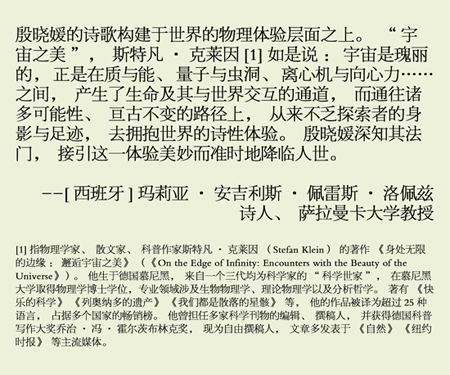
Poems given to the physical experience of the world. “Beauty of the universe,” says Stefan Klein and it is right because in mass and energy, in quantum and wormholes, between the centrifuge and centripetal forces, life and its opening are settled, its possibility, its permanent path full of coats and feet to say yes to the poetic experience. Yin Xiaoyuan knows it and makes it arrive beautifully punctual.
—María Ángeles Pérez López
Poet and Professor, University of Salamanca, Spain
~ ~ ~
“Being asked (for the third time) about his reason for planting a dove tree seedling
in a luminous cup, he kept on meditating in a detached melancholy: there is no seedling
but shreds of moonlight on a stem, soaked in the blue shimmers of cobalt
Drawn out as a new pole, out of night’s sheath—”
(From “CO-quette in Blue”)
~ ~ ~
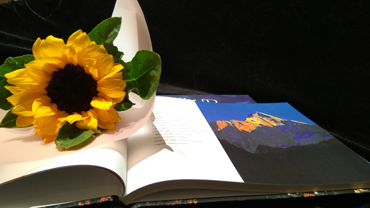
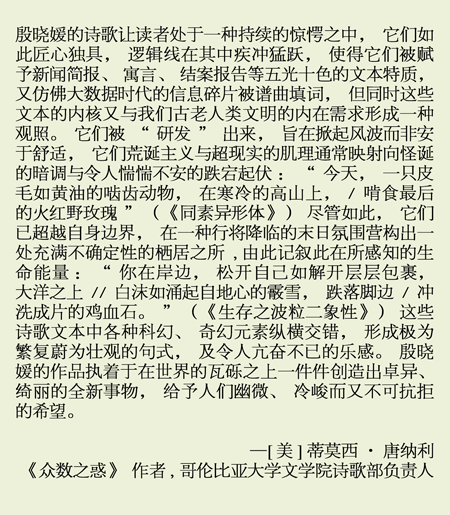
Consistently surprising in their inventiveness and leaps of logic, the poems of Yin Xiaoyuan read like bulletins, fables, case reports and songs built from the wreckage of the information age, but also in accordance with our ancient human need. These poems are engineered to jostle rather than to comfort, and their absurdist surreality often takes comically dark and disquieting turns: “Today a buttery-coated rodent / nibbled away buds of your last wild rose.” Nonetheless, and almost in spite of themselves, they make a dwelling of uncertainty amid a dawning doom, giving voice to the way it feels to be alive now: “When you unpack your entire life / On the shore, like windblown sleet, froth and foam will rise / From the center of the ocean, and sweep across your feet….” Riddled with science, the fantastic, gorgeously complex sentences and exhilarating music, the work of Yin Xiaoyuan offers, in its insistence on creating something new and strangely beautiful from the rubble of our world, a modest, unsentimental, and not unwelcome hope.
—Timothy Donnelly
Author of The Problem of the Many, Columbia University School of the Arts
~ ~ ~
“There is a cheetah, which has ambled along the front of night,
and picked up the setting sun from among the tumbleweeds.”
(From “Communication Behaviors”)
~ ~ ~
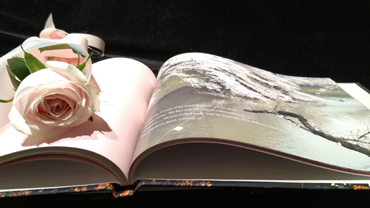
Book and Flower Photographs by Yin Xiaoyuan
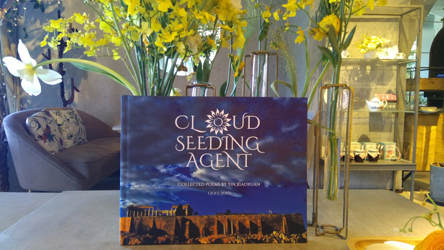
Award Nominations

Page last updated: September 15, 2020
All pages copyright © 2020 by Pinyon Publishing

